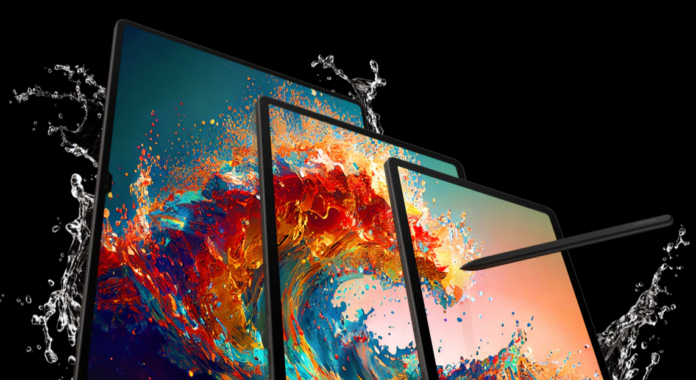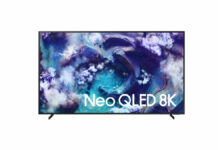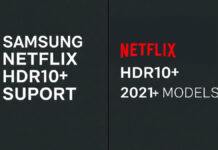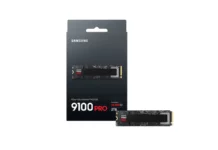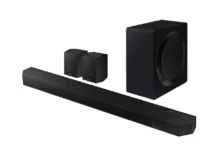Choosing the Perfect Tablet: Samsung’s Galaxy Tab S9 Series
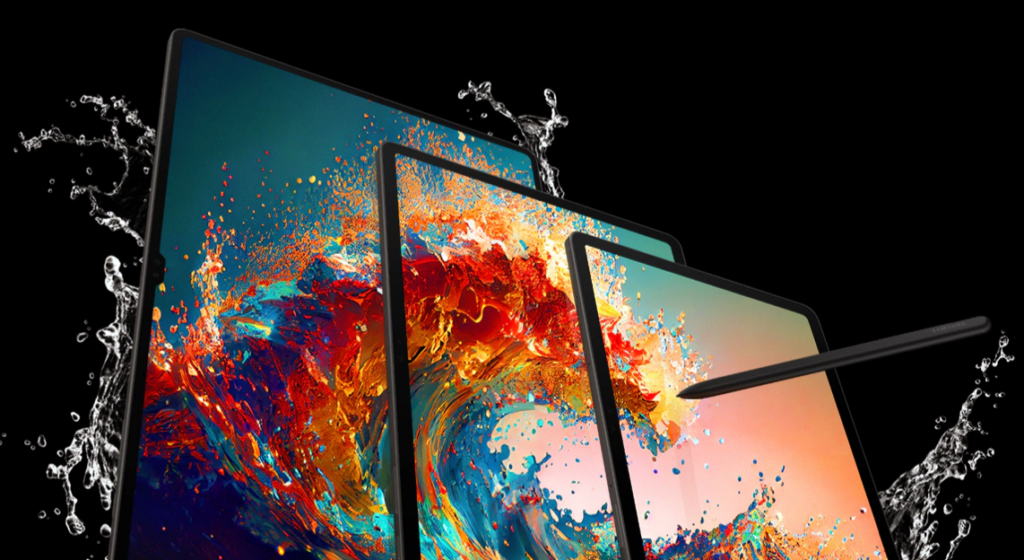
Simplifying Decisions with Consistency
If you’re eyeing a high-end Android tablet this year, Samsung has made your choice simpler than ever with the Galaxy Tab S9 lineup. Whether it’s the 11-inch Tab S9, the 12.4-inch Tab S9 Plus, or the expansive 14.6-inch Tab S9 Ultra, the decisions boil down to your budget and preferred screen size. Across the board, these tablets share screen technology, processors, color options, designs, accessories, and features.

Enhancements Over the Prior Generation
Compared to last year’s Tab S8 lineup, the Tab S9 presents two notable upgrades. The new Qualcomm processor promises enhanced speed, although the previous models were already quite performant. Additionally, the tablets now boast IP68 water and dust resistance, akin to modern smartphones. This means you can confidently use the tablets around water sources or amidst life’s unexpected spills and surprises. Notably, Samsung’s models stand out with this water resistance feature, setting them apart in the tablet market.
Setting the Standard with Water Resistance
While iPads lack water resistance, all three Tab S9 models include this advantageous feature. This sets Samsung’s tablets apart in terms of durability and usability.
Seamless Integration for Samsung Ecosystem

If you’re already considering a Samsung tablet, it’s likely due to the seamless integration within the Samsung ecosystem. These tablets serve as compelling alternatives to Apple’s iPad range, especially for those already invested in Samsung devices. The shared software allows smooth file transfers, text message responses from the tablet, and consistent app usage across devices. If you own Galaxy Buds, they seamlessly transition between your phone and tablet, much like Apple’s ecosystem. For a deeper dive into this integration, check out my review of last year’s Tab S8 and S8 Plus.
Immersive Media Experience
Samsung’s high-end tablets are superior media consumption devices, boasting OLED displays and impressive speakers. Movies, TV shows, and games come to life on these tablets, offering a top-tier audiovisual experience. If your tablet’s primary purpose is media consumption, these options stand out. However, for a budget-friendly alternative, Apple, Lenovo, or OnePlus provide nearly comparable experiences at a lower cost.
Pricing and Accessories
It’s worth noting that these tablets come at a premium price point. This year, Samsung increased the price of each model by $100. The Tab S9 starts at $799.99, the Tab S9 Plus at $999.99 and up, and the Tab S9 Ultra at $1,199.99. All models include the S Pen stylus (now water-resistant) in the package. However, accessory costs can quickly add up, particularly for keyboards. It’s slightly frustrating that Samsung excludes a charging brick, despite the tablets supporting up to 45W fast charging. Charging them with a standard phone-sized charger might prove time-consuming.
Tailored Recommendations
After thorough testing of all three models, I’ve crafted personalized recommendations for each tablet user. Additionally, I’ve provided competitive alternatives for each tablet size category below.
In conclusion, Samsung’s Galaxy Tab S9 series offers a range of options catering to various needs and preferences. From water resistance to seamless integration and immersive media experiences, these tablets impress in several aspects. However, it’s crucial to consider the pricing and potential accessory costs when making your decision. With my tailored recommendations, you can find the perfect fit for your tablet requirements.
Galaxy Tab S9: Optimal for Tablet Activities

NewForTech Score: 7.9
Samsung Galaxy Tab S9: $799.99
Pros and Cons:
Pros:
- Finally equipped with an OLED screen
- Compact and lightweight, ensuring comfortable handling
- Impressive performance
- Exceptional speaker quality
- Water resistance
Cons:
- The 16:10 aspect ratio feels constrained for web browsing
- Comes with a premium price tag
Pricing:
- $800 at Samsung
- $800 at Best Buy
- $800 at Amazon
Evaluation Criteria: How We Review and Rate Products
Ideal for Tablet Tasks
Among the trio of sizes available, the 11-inch Galaxy Tab S9 stands out as the most suitable choice for typical tablet tasks. This encompasses activities like video consumption, reading books, note-taking, gaming, and light productivity such as emailing. Holding the 11-inch tablet for extended periods is remarkably comfortable, setting it apart from its counterparts. Moreover, using it in portrait orientation is a hassle-free experience due to its compact size.
Seamless Note-Taking Experience
The 11-inch size is particularly well-suited for taking handwritten notes using the included S Pen stylus. The tablet ships with Samsung Notes, a comprehensive note-taking app that even syncs with Microsoft’s OneNote. Notably, the Android ecosystem is gradually incorporating options familiar to iPad users. Notably, Goodnotes, a popular iPad note-taking app, is available free for a year with the Tab S9 series. Additionally, Nebo, known for its effective handwriting-to-text conversion and cross-platform syncing, has proven quite useful.
Enhanced Screen and Audio
Unlike previous years, where the best screens were reserved for larger Samsung tablets, the Tab S9 breaks this pattern. It offers the same impressive 120Hz OLED screen found in its larger siblings but in a more compact form. Coupled with the Tab S9’s four Dolby Atmos-compatible speakers, this setup delivers an immersive movie-watching experience.
Aspect Ratio Quandary
One notable drawback of the Tab S9 is Samsung’s steadfast adherence to the 16:10 aspect ratio. This design choice results in a tablet that’s comparatively more elongated than an 11-inch iPad Pro or the OnePlus Pad. While the width aligns closely with these tablets, there’s a sacrifice of about half an inch or more in screen height. Consequently, web browsing feels constrained in landscape mode, and the portrait mode offers a slightly narrower view.
Multitasking and DeX Mode
The Tab S9 offers extensive split-screen options for multitasking, and it even supports a desktop-like DeX mode. However, due to its smaller screen size, using these features can feel slightly awkward unless you’re sticking to basic side-by-side app arrangements. While the tablet does offer multitasking capabilities, it might not be the optimal choice if you’re aiming to replace a laptop or engage in extensive productivity tasks.
In summary, the Galaxy Tab S9, especially in its 11-inch form, excels at catering to typical tablet activities. From media consumption to note-taking, it’s a capable device. However, the aspect ratio and screen size might influence your decision based on your preferences and usage patterns.
Galaxy Tab S9 Ultra: The Ultimate Productivity Powerhouse

NewForTech Score: 6.1
Samsung Galaxy Tab S9 Ultra: $1199.99
Pros and Cons:
Pros:
- Spacious screen for enhanced productivity
- Robust desktop mode
- Impressive performance
- Water resistance
Cons:
- Less suitable for non-productivity tasks
- Comes with a premium price tag
- Moderate battery life in desktop mode
- Lacks cellular connectivity option
Pricing:
- $1200 at Samsung
- $1200 at Best Buy
Ideal for Productivity
The considerable 14.6-inch Tab S9 Ultra is primarily aimed at individuals seeking a laptop alternative for productive endeavors. To unleash its potential, pairing it with a keyboard case is essential. Samsung offers options both with a trackpad ($350) and without ($200), but this enhances the already steep price of this tablet. With costs ranging from $1,400 to $1,500, it’s comparable to a well-equipped MacBook Air.
However, the investment might pay off significantly, as the tablet offers an impressive array of features for productivity. Samsung’s DeX feature, which replicates a desktop environment with customizable windows akin to Windows or macOS, is the star of the show.
Empowering DeX Mode
Historically, DeX had limitations that hindered its practicality. Yet, Samsung has addressed several issues, such as app compatibility, windowing, and input, rendering DeX a reliable tool for work. Compared to Apple’s Stage Manager feature on the iPad, DeX offers a more flexible experience. Users can have multiple windows open, arrange them as desired, and utilize keyboard shortcuts, trackpad gestures, and mouse support. The option to extend content to an external display while using the tablet’s screen further enhances productivity.
Ample Screen Real Estate
The 14.6-inch display of the Tab S9 Ultra surpasses the dimensions of most laptop screens, providing ample space for tasks. This roomy layout reduces the need to constantly switch between apps and windows. Samsung’s built-in apps, Google’s suite, and Microsoft’s Office suite all optimize the larger screen size with well-designed layouts and features. While some apps like Slack and Threads might not be fully optimized, they operate well within DeX’s contained windows, maintaining their phone-sized layouts.
Quirks and Compromises
Despite the strides, some quirks remain, such as occasional trackpad limitations in apps like Google Docs. Moreover, the Ultra doesn’t consistently retain window positions after brief periods of non-use. However, when equipped with a portable mouse, the Tab S9 Ultra becomes a capable tool for various tasks that can prove frustrating on other tablets.
Limitations and Identity
On the other hand, the Tab S9 Ultra falls short in non-productive tablet tasks. Its size makes it unwieldy for extended handheld use and challenging to accommodate on airplane trays or smaller bags. Handling it in portrait mode feels awkward, and it’s overwhelming for activities like reading.
Regrettably, the Tab S9 Ultra doesn’t offer cellular connectivity, a notable shortfall compared to other options. Battery life also lags when used in full-tilt DeX mode, lasting around five to six hours on average.
Striving for Balance
The Tab S9 Ultra seems to grapple with an identity crisis — should it excel in media and entertainment or prioritize productivity? While leaning towards the latter seems wise, Samsung must refine its approach to fully realize this potential.
Alternative articles: Samsung’s Bixby Custom Voice vs. iOS 17’s Personal Voice || Samsung Galaxy Z Fold 5 vs. Google Pixel Fold: Flagship Champion || Review of Asus ROG Phone 7 Ultimate: The Epitome of Gaming Excellence
Galaxy Tab S9 Plus: The One to Consider Skipping

NewForTech Score: 6.3
Samsung Galaxy Tab S9 Plus: $999.99
Pros and Cons:
Pros:
- Stunning display and impressive audio
- Swift performance
- Limited cellular option available
- Water resistance
Cons:
- Too large for typical tablet tasks
- Not spacious enough for comfortable productivity
- Limited cellular options (excludes T-Mobile and unlocked)
Pricing:
- $1000 at Samsung
- $1000 at Best Buy
- $1000 at Amazon
Middle Ground, Middling Experience
The Galaxy Tab S9 Plus, positioned between the larger Tab S9 Ultra and the smaller Tab S9 in both size and price, seems to blend the less favorable aspects of its counterparts without delivering a markedly superior experience. It lands squarely in the middle.
Balancing Act for Display
Sporting a 12.4-inch OLED screen, the Tab S9 Plus offers impressive visuals. However, it lacks the expansiveness of the 14.5-inch Ultra screen and is somewhat unwieldy for handheld use or portrait orientation. Notably, the standard Tab S9 model also features an OLED screen this year, reducing the need to opt for the Plus model exclusively for this feature.
Cellular Connectivity Options and Limitations
The standout feature of the Tab S9 Plus is its cellular connectivity option. While this is a significant inclusion, it’s worth noting that not all users can take advantage of it. Samsung offers carrier versions for AT&T, Verizon, and UScellular, excluding T-Mobile and the availability of an unlocked version in the US. This limitation is unfortunate, particularly considering that most tablets offer more extensive cellular options.
Puzzling Positioning
In the landscape of tablet options, the Tab S9 Plus finds itself in a puzzling position. It possesses the cellular advantage over its siblings, but it fails to excel in either tablet-oriented tasks or productivity pursuits. Given that the Tab S9 thrives as a pure tablet experience and the Tab S9 Ultra excels in productivity, the Tab S9 Plus struggles to carve out a compelling niche.
In conclusion, while the Tab S9 Plus brings certain benefits to the table, its positioning and limitations make it a challenging choice for most users. The other models within the Tab S9 series often offer more focused and tailored experiences for their respective purposes.
Discover more from NewForTech
Subscribe to get the latest posts sent to your email.

